Public and Administrative Law (Books and Journals)
41712 results for Public and Administrative Law (Books and Journals)
-
 International Migration
From No. 1-2, April 1963
to No. 56-6, December 2018
Wiley, 2022
International Migration
From No. 1-2, April 1963
to No. 56-6, December 2018
Wiley, 2022
-
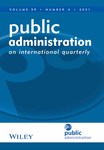 Public Administration
From No. 1-1, January 1923
to No. 97-4, December 2019
Wiley, 2022
Public Administration
From No. 1-1, January 1923
to No. 97-4, December 2019
Wiley, 2022
-
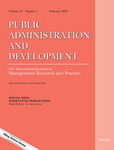 Public Administration and Development
From No. 4-S2, October 1952
to No. 39-4-5, October 2019
Wiley, 2022
Public Administration and Development
From No. 4-S2, October 1952
to No. 39-4-5, October 2019
Wiley, 2022
-
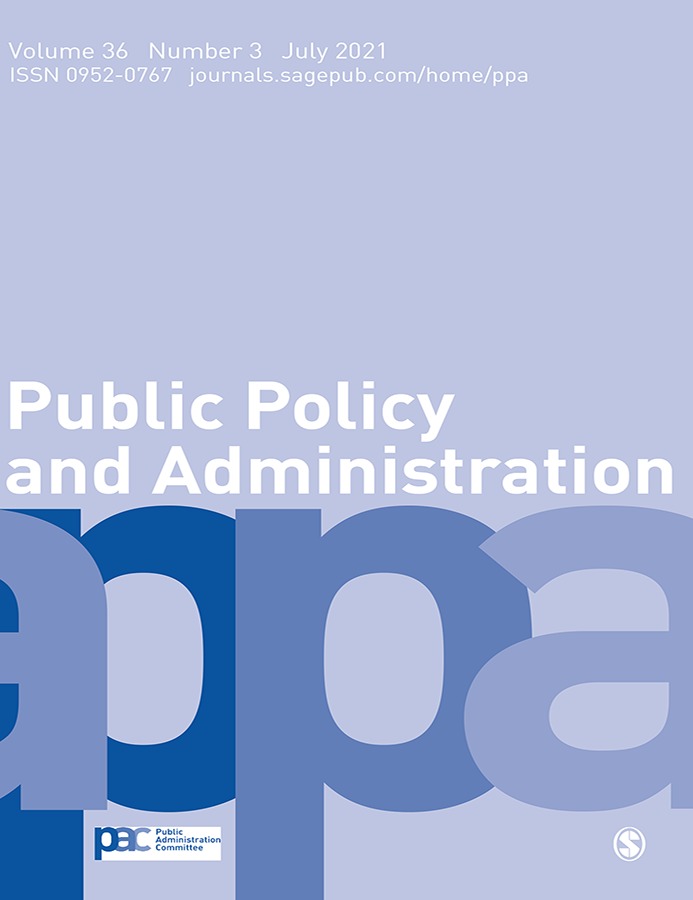 Public Policy and Administration
From No. 1-1, January 1986
to No. 38-2, April 2023
Sage Publications, Inc., 2021
Public Policy and Administration
From No. 1-1, January 1986
to No. 38-2, April 2023
Sage Publications, Inc., 2021
-
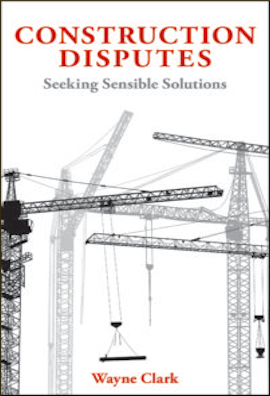 Construction Disputes. Seeking Sensible Solutions
by:
London Publishing Partnership, 2021
Construction Disputes. Seeking Sensible Solutions
by:
London Publishing Partnership, 2021
-
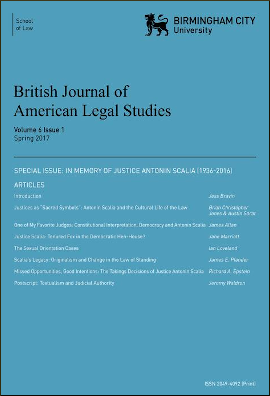 British Journal of American Legal Studies
From No. 5-1, April 2016
to No. 10-2, August 2021
British Journal of American Legal Studies
From No. 5-1, April 2016
to No. 10-2, August 2021
-
 British Journal of Community Justice
From No. 1-1, March 2002
to No. 17-2, September 2021
British Journal of Community Justice
From No. 1-1, March 2002
to No. 17-2, September 2021
-
 Global Knowledge, Memory and Communication
From No. 67-1/2, February 2018
to No. 72-4/5, February 2022
Emerald Group Publishing Limited, 2021
Global Knowledge, Memory and Communication
From No. 67-1/2, February 2018
to No. 72-4/5, February 2022
Emerald Group Publishing Limited, 2021
-
 Journal of Aggression, Conflict and Peace Research
From No. 1-1, April 2009
to No. 14-4, October 2022
Emerald Group Publishing Limited, 2021
Journal of Aggression, Conflict and Peace Research
From No. 1-1, April 2009
to No. 14-4, October 2022
Emerald Group Publishing Limited, 2021
-
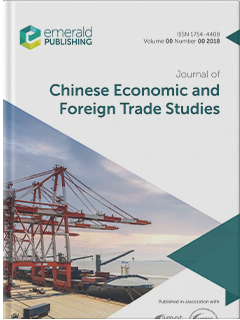 Journal of Chinese Economic and Foreign Trade Studies
From No. 1-1, January 2008
to No. 16-2, May 2023
Emerald Group Publishing Limited, 2021
Journal of Chinese Economic and Foreign Trade Studies
From No. 1-1, January 2008
to No. 16-2, May 2023
Emerald Group Publishing Limited, 2021
-
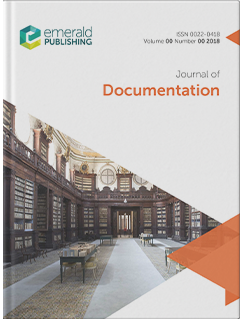 Journal of Documentation
From No. 1-1, January 1945
to No. 79-7, March 2023
Emerald Group Publishing Limited, 2021
Journal of Documentation
From No. 1-1, January 1945
to No. 79-7, March 2023
Emerald Group Publishing Limited, 2021
-
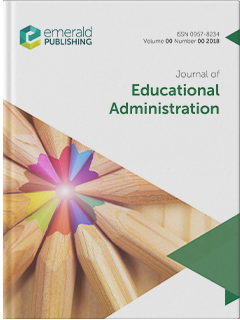 Journal of Educational Administration
From No. 1-1, January 1963
to No. 58-3, April 2020
Emerald Group Publishing Limited, 2021
Journal of Educational Administration
From No. 1-1, January 1963
to No. 58-3, April 2020
Emerald Group Publishing Limited, 2021
-
 Journal of Public Mental Health
From No. 1-1, January 1999
to No. 19-2, June 2020
Emerald Group Publishing Limited, 2021
Journal of Public Mental Health
From No. 1-1, January 1999
to No. 19-2, June 2020
Emerald Group Publishing Limited, 2021
-
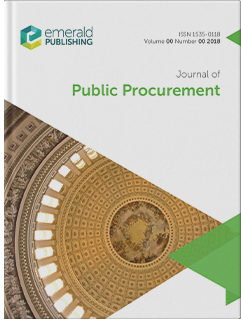 Journal of Public Procurement
From No. 1-1, April 2001
to No. 20-2, April 2020
Emerald Group Publishing Limited, 2021
Journal of Public Procurement
From No. 1-1, April 2001
to No. 20-2, April 2020
Emerald Group Publishing Limited, 2021
-
 Mental Health Review Journal
From No. 1-1, March 1996
to No. 25-1, March 2020
Emerald Group Publishing Limited, 2021
Mental Health Review Journal
From No. 1-1, March 1996
to No. 25-1, March 2020
Emerald Group Publishing Limited, 2021
-
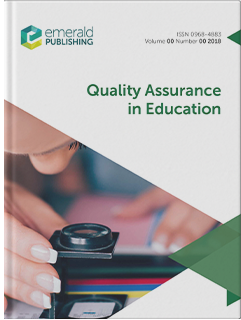 Quality Assurance in Education
From No. 1-1, January 1993
to No. 28-2, March 2020
Emerald Group Publishing Limited, 2021
Quality Assurance in Education
From No. 1-1, January 1993
to No. 28-2, March 2020
Emerald Group Publishing Limited, 2021
-
 The Journal of Adult Protection
From No. 1-1, August 1999
to No. 22-2, April 2020
Emerald Group Publishing Limited, 2021
The Journal of Adult Protection
From No. 1-1, August 1999
to No. 22-2, April 2020
Emerald Group Publishing Limited, 2021
-
 The Journal of Forensic Practice
From No. 15-1, February 2013
to No. 22-2, March 2020
Emerald Group Publishing Limited, 2021
The Journal of Forensic Practice
From No. 15-1, February 2013
to No. 22-2, March 2020
Emerald Group Publishing Limited, 2021
-
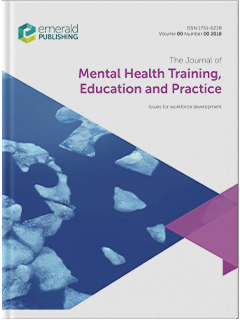 The Journal of Mental Health Training, Education and Practice
From No. 1-1, May 2006
to No. 15-3, April 2020
Emerald Group Publishing Limited, 2021
The Journal of Mental Health Training, Education and Practice
From No. 1-1, May 2006
to No. 15-3, April 2020
Emerald Group Publishing Limited, 2021
- Journal of Property Investment & Finance From No. 17-1, March 1999 to No. 40-4, June 2022 Emerald Group Publishing Limited, 2021
-
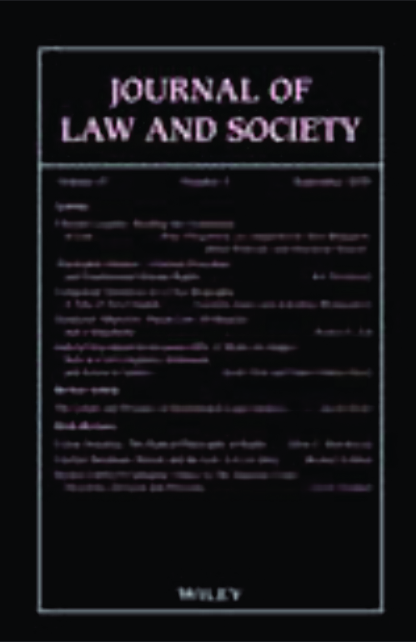 Journal of Law and Society
From No. 24-1, March 1997
to No. 48-1, March 2021
Wiley, 2021
Journal of Law and Society
From No. 24-1, March 1997
to No. 48-1, March 2021
Wiley, 2021
-
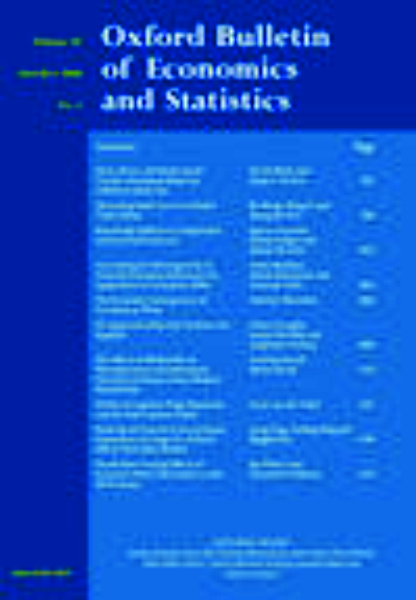 Oxford Bulletin of Economics and Statistics
From No. 35-1, February 1973
to No. 82-6, December 2021
Wiley, 2021
Oxford Bulletin of Economics and Statistics
From No. 35-1, February 1973
to No. 82-6, December 2021
Wiley, 2021
-
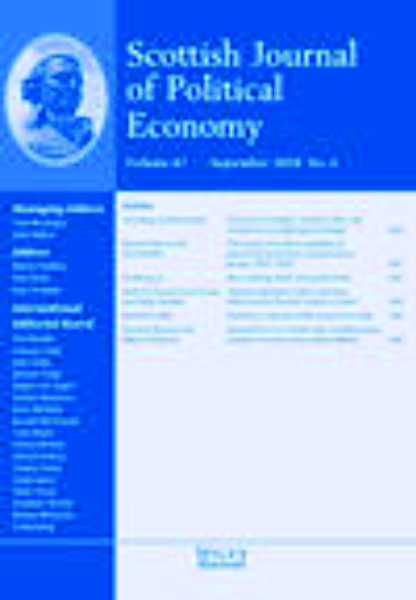 Scottish Journal of Political Economy
From No. 1-1, March 1954
to No. 68-1, February 2021
Wiley, 2021
Scottish Journal of Political Economy
From No. 1-1, March 1954
to No. 68-1, February 2021
Wiley, 2021
-
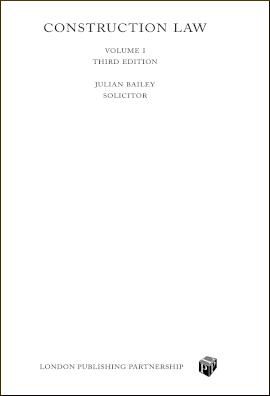 Construction Law. Volume I - Third Edition
by:
London Publishing Partnership, 2020
Construction Law. Volume I - Third Edition
by:
London Publishing Partnership, 2020
-
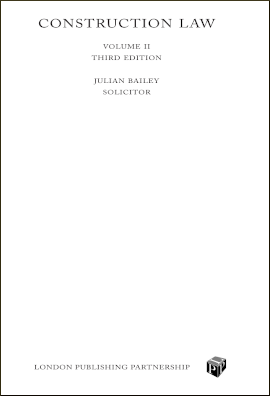 Construction Law. Volume II - Third Edition
by:
London Publishing Partnership, 2020
Construction Law. Volume II - Third Edition
by:
London Publishing Partnership, 2020
-
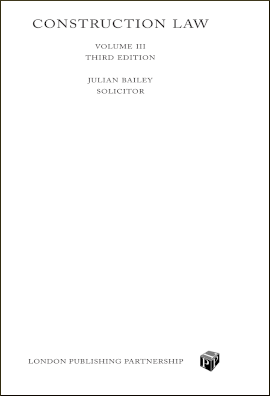 Construction Law. Volume III - Third Edition
by:
London Publishing Partnership, 2020
Construction Law. Volume III - Third Edition
by:
London Publishing Partnership, 2020
- Art Antiquity & Law From Vol. 23 No. 1, April 2018 to Vol. 28 No. 2, July 2023 Institute of Art and Law, 2019
- Forum on Public Policy: A Journal of the Oxford Round Table From No. 2007, December 2007 to No. 2022, March 2022 Forum on Public Policy, 2018
-
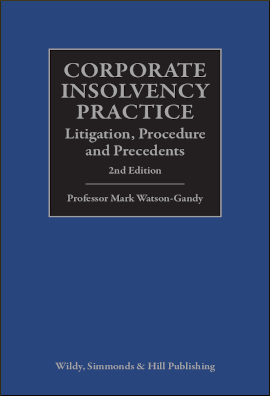 Watson-Gandy On Corporate Insolvency Practice - 2nd Edition
by:
Wildy Simmonds & Hill, 2017
Watson-Gandy On Corporate Insolvency Practice - 2nd Edition
by:
Wildy Simmonds & Hill, 2017
-
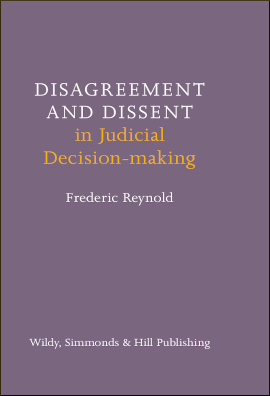 Disagreement and dissent in Judicial Decision-making
by:
Wildy Simmonds & Hill, 2013
Disagreement and dissent in Judicial Decision-making
by:
Wildy Simmonds & Hill, 2013
-
Geoffrey Kingdon Fry and the British road to public sector reform
To mark the 2023 death of GK Fry this note focuses attention on the approach to public sector reform in Britain discussed in his many works. Starting with his criticism of the 1968 Fulton Committee Report, his work developed a view of reform that foreshadowed debates that later went under the label of ‘new public management’ by at least 20 years. This note explains how he argued that a ‘positive...
-
Collegiality and efficiency in bureaucracy
This article addresses the relation between the design of regulatory agencies and efficiency, arguing that authority concentrated to a single individual outperforms more collegial decision-making when the regulated firms’ interests are aligned. The tentative explanation is that concentrated leadership reduces the risk for capture. This argument is developed from an empirical case on the markets...
-
Problematizing partner selection: Collaborative choices and decision-making uncertainty
Although networked collaboration is often linked to positive outcomes, choosing suitable partners for collaboration can be difficult. Actors often only have limited information about the preferences, capabilities, and trustworthiness of prospective collaborators, meaning that considerable uncertainty may underlie collaborative choices. This article analyses the decision-making uncertainty...
-
Public administration reform and political will in cases of political instability: Insights from the Israeli experience
How do public administration reforms develop in cases of political instability? Administrative reform has always been on the agenda of governments. Ample literature discusses its necessity and the factors that are associated with both its successes and failures worldwide. Nevertheless, only a few studies discuss the impact of political instability on public administration reform. Focusing on the...
-
Adoption is not enough: Institutionalization of e-participation initiatives
This study investigates the institutionalization of e-participation initiatives in six European countries—Estonia, France, Germany, the Netherlands, Scotland, and Spain—using a multiple case study. The following research questions are addressed: How have recently established e-participation initiatives been institutionalized in public administrations? What are the formal and informal aspects of...
-
Politicians’ involvement in street-level policy implementation: Implications for social equity
The study explores whether elected officials’ involvement in the way street-level bureaucrats implement policy affects social equity. This question is addressed empirically through interviews and focus groups with 84 Israeli educators and social workers. Findings indicate that elected officials involve themselves directly and indirectly in street-level bureaucrats’ policy implementation and their
- The UK's 'Statue Wars': Can Human Rights Law Assist in Their Resolution?
- The Fine Art of Acquiring Authentic Artworks.
- Theories of Taking and Legal Spheres of Property.
- The Return of the Holy Doors of St Anastasios from the Kanazawa College of Art.
- Art Law and the Business of Art, 2nd edn.
- The Art of Copying Art.
-
Trade war, media tone and market reaction asymmetry
Purpose: This study investigates the impacts of Chinese media reporting strategy (media tone) on the market performance of US-trade-intensive firms vs non-US-trade-intensive firms and the effect of media tone on the occurrence of good and bad news. Design/methodology/approach: News texts were retrieved from nine major financial/economic media outlets. Lexical analysis and event study have been...
-
Development, use and evaluation of a web based mental capacity assessment tool for staff working with people with learning disabilities
Purpose: This paper aims to describe the development, use and evaluation of a web-based mental capacity assessment tool (MCA WAT) within the Learning Disabilities division of a Mental Health and Learning Disabilities Trust in England. Design/methodology/approach: The MCA WAT was developed to ensure there was contemporaneous recording of each capacity assessment; help staff improve their...
-
Individuals with intellectual disabilities experiences of the therapeutic relationship
Purpose: This research aimed to explore individuals with intellectual disabilities (ID) experiences of the therapeutic relationship. Design/methodology/approach: Six individuals with ID were recruited who were currently having 1:1 therapy. Semi-structured interviews focused on their experiences of the therapeutic relationship. Findings: Using interpretative phenomenological analysis, six...
- Editorial: The use of artificial intelligence in fighting financial crime, for better or worse?
-
Historical aspects of customer due diligence and related anti-money laundering measures in South Africa
Purpose: This paper explores the historical aspects of customer due diligence and related anti-money laundering measures in South Africa. Customer due diligence measures are usually employed to ensure that financial institutions know their customers well by assessing them against the possible risks they might pose such as fraud, money laundering, Ponzi schemes and terrorist financing. Accordingly,
-
Intellectual disability and autism in adults influence psychological treatments for mental health comorbidities
Purpose: The purpose of the study was to examine whether there were differences in the provision of non-pharmacological interventions based on the level of intellectual disability and the presence or absence of autism. Mental health conditions are often underdiagnosed in adults with intellectual disability and do not always receive psychological interventions as recommended by the National...
-
Examining the relationship of age with fears among adolescents and young adults with and without intellectual disabilities
Purpose: This paper aims to examine for differences in potentially productive fear versus all other fear scores comparing adolescents and young adults with intellectual disabilities versus their typically developing peers without intellectual disabilities while statistically controlling for chronological age. Design/methodology/approach: The authors examined for differences in potentially...
- Guest editorial: FDI divestment inflows and outflows in developing economies
-
Informed consent with people judged incapable of legally consenting
Purpose: The purpose of this study is to consider informed consent with those who may be legally judged incapable of consent. Frequently individuals with traumatic brain injuries and intellectual disabilities may fall into this category. This paper seeks to consider aspects of guardianship, moral and legal implications and best practices for mental health professionals. Design/methodology/approac
-
Reminders, reflections, and relationships: insights from the design of a chatbot for college advising
Purpose: In the USA, 22–40% of youth who have been accepted to college do not enroll. Researchers call this phenomenon summer melt, which disproportionately affects students from disadvantaged backgrounds. A major challenge is providing enough mentorship with the limited number of available college counselors. The purpose of this study is to present a case study of a design and user study of a...
-
Implementing digitalization in the public sector. Technologies, agency, and governance
Technological transformations are currently reshaping the structure and strategies of public administrations and are expected to foster efficiency and policy integration. However, the literature on digital government has demonstrated that the introduction of technology is far from a smooth process, as it is often associated with conflict and negative feedback. This paper departs from James...
-
Implementing digitalization in the public sector. Technologies, agency, and governance
Technological transformations are currently reshaping the structure and strategies of public administrations and are expected to foster efficiency and policy integration. However, the literature on digital government has demonstrated that the introduction of technology is far from a smooth process, as it is often associated with conflict and negative feedback. This paper departs from James...
-
Electoral administration and the problem of poll worker recruitment: Who volunteers, and why?
Elections depend on the thousands of people who give up their time to administer this crucial public service. They staff polling stations and ensure votes are issued, cast and counted. Poll workers are effectively ‘stipended volunteers’, receiving some limited financial compensation, but working for the broader public good. It is important to understand why people choose to give up their time to...
-
Electoral administration and the problem of poll worker recruitment: Who volunteers, and why?
Elections depend on the thousands of people who give up their time to administer this crucial public service. They staff polling stations and ensure votes are issued, cast and counted. Poll workers are effectively ‘stipended volunteers’, receiving some limited financial compensation, but working for the broader public good. It is important to understand why people choose to give up their time to...
-
Analyzing open government policy adoption through the multiple streams framework: The roles of policy entrepreneurs in the case of Madrid
Open government is expected to promote important changes related to transparency, participation, and collaboration in the public sector. This article analyzes the open government policy-making process in Madrid. In order to explain the adoption process of open government as a public policy, this study uses the “multiple streams framework,” originally developed by Kingdon and recently elaborated...
-
What’s in it for me? How blame and credit expectations affect support for innovation
The article applies an experimental vignette research design to test how blame and credit expectations affect individuals’ willingness to support innovative programs. Respondents received a survey with three scenarios of innovative programs and were randomly allocated to being blamed if the program failed, credited if it succeeded, or a control group. Blame and credit framing had no statistically
-
What’s in it for me? How blame and credit expectations affect support for innovation
The article applies an experimental vignette research design to test how blame and credit expectations affect individuals’ willingness to support innovative programs. Respondents received a survey with three scenarios of innovative programs and were randomly allocated to being blamed if the program failed, credited if it succeeded, or a control group. Blame and credit framing had no statistically
-
Analyzing open government policy adoption through the multiple streams framework: The roles of policy entrepreneurs in the case of Madrid
Open government is expected to promote important changes related to transparency, participation, and collaboration in the public sector. This article analyzes the open government policy-making process in Madrid. In order to explain the adoption process of open government as a public policy, this study uses the “multiple streams framework,” originally developed by Kingdon and recently elaborated...
